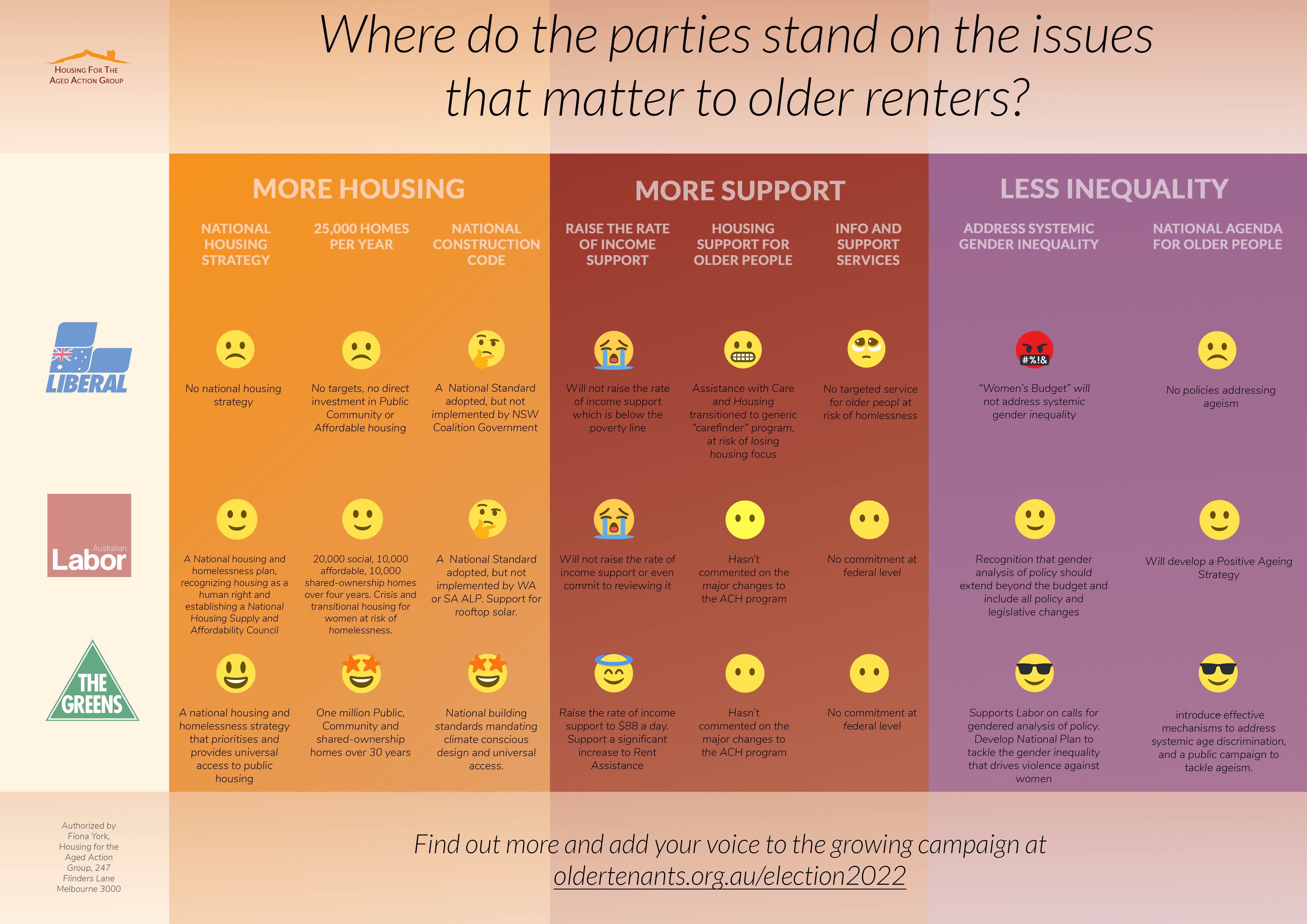Older renters will be best served by policies brought to the election by the Labor Party and the Greens, according to an analysis of housing policy by Housing for the Aged Action Group (HAAG).
The organisation, which advocates for better outcomes for older people’s housing, notes that developing a national housing strategy is key to ensuring older people can access affordable and appropriate homes. Both Labor and the Greens have promised to develop such a strategy. The Liberal Party’s National Housing and Homelessness Agreement is a funding instrument, not the kind of holistic strategy required to deal with a housing crisis that has left one in 6 people older than 55 experiencing homelessness.
HAAG Executive Officer Fiona York says everyone in Australia deserves a safe, stable home as they age, but for this to be realised, the nation needs a plan to deal with the conditions causing Australia’s housing crisis.
“Multiple changes are required to our housing, retirement, social services and income support systems to address this issue meaningfully,” she says.
“A National Strategy would give us a plan to tackle the crisis.”
Unfortunately, when it comes to providing more support for older renters, no parties offer much in the way of additional housing support for older people, or targeted information and support services for older people. Only the Greens have committed to raise the rate of income support, a key contributor to housing insecurity as people grow older.
“The next Federal Government has an opportunity to reduce future social and economic costs, and provide much needed relief to the homelessness and crisis response sector.” York says.
“Raising the rate of income support would give people a chance to rebuild their lives after periods of hardship, and reduce the likelihood of experiencing housing stress as they age.”
On a more optimistic note, Labor’s policy platform includes plans to develop a positive ageing strategy, and the Greens say they will introduce mechanisms to address systemic age discrimination. While scant on detail, both of thse measures have the potential to improve protections for older people who do not own their own homes.
Currently there are more than 405,000 women aged 55 and older who are at risk of homelessness. While the Coalition has made no attempts to improve economic or social conditions for women, both Labor and the Greens have each included in their policy platforms a recognition of the role that gender plays in outcomes for older women’s housing.



 "There is nothing like staying at home for real comfort."
"There is nothing like staying at home for real comfort."